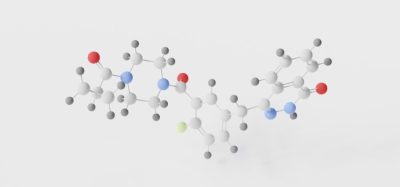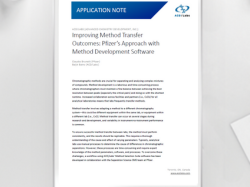Lecanemab diminishes mental deterioration in early Alzheimer’s
Posted: 28 September 2022 | Catherine Eckford (European Pharmaceutical Review) | No comments yet
Phase III trial confirmed Eisai’s lecanemab significantly decreased cognitive decline in patients with mild Alzheimer’s disease.


Eisai, a Japanese pharmaceutical company based in Tokyo, has published positive top-line data for their large global Phase III CLARITY AD study assessing the drug lecanemab, an anti-amyloid beta (Aβ) protofibril antibody for the treatment of early Alzheimer’s disease (AD), revealing that participants experienced a considerable reduction in clinical cognitive deterioration.
The trial (NCT03887455) studied 1,795 participants in Japan, the US, Europe and China, comparing lecanemab administered twice a week in a dose of 10 mg/kg to placebo. Participants were given placebo or lecanemab in a ratio of 1:1. Six months into the study, all key secondary endpoints were met with highly statistically significant results compared with placebo (p<0.01).
During the trial, amyloid levels in the brain were measured using amyloid positron emission tomography (PET). Defects to the anti-amyloid antibodies, called Amyloid-related imaging abnormalities-edema/effusion (ARIA-E), was 12.5 percent in the lecanemab group and 1.7 percent in the placebo group. Symptomatic ARIA-E occurred in 2.8 percent of cases in the lecanemab group and no instances in the placebo group. ARIA-H (ARIA cerebral microhaemorrhages, cerebral microhaemorrhages and superficial siderosis) percentage was 17.0 in the lecanemab group and 8.7 percent in the placebo group. The prevalence of symptomatic ARIA-H was 0.7 percent in the lecanemab group and 0.2 percent in the placebo group. No imbalance in isolated ARIA-H (ie, ARIA-H in patients who did not have ARIA-E) between lecanemab (8.8 percent) and placebo (7.6 percent) was noted. The total rate of ARIA (ARIA-E and/or ARIA-H) was 21.3 percent in the lecanemab group and 9.3 percent in the placebo group.
“We are very excited about the great lecanemab Phase III results in early Alzheimer’s disease announced by our partner Eisai today. It brings hope to millions of people around the world who are fighting Alzheimer’s disease every day. This is a huge accomplishment by our employees and our partner Eisai who have worked tirelessly for almost two decades to make this project a success. We are proud that our founder Lars Lannfelt’s discoveries has the potential to fundamentally improve the treatment of Alzheimer’s disease, where there currently are very limited options,” described BioArctic’s CEO Gunilla Osswald.
Eisai aims for US approval of the data by early 2023. The study results will show the findings at the Clinical Trials on Alzheimer’s Disease conference (CTAD) in November.
Related topics
Antibodies, Biologics, Clinical Development, Clinical Trials, Dosage, Drug Development, Drug Safety, Research & Development (R&D), Therapeutics
Related organisations
BioArctic, Clinical Trials on Alzheimer’s Disease conference (CTAD), Eisai









